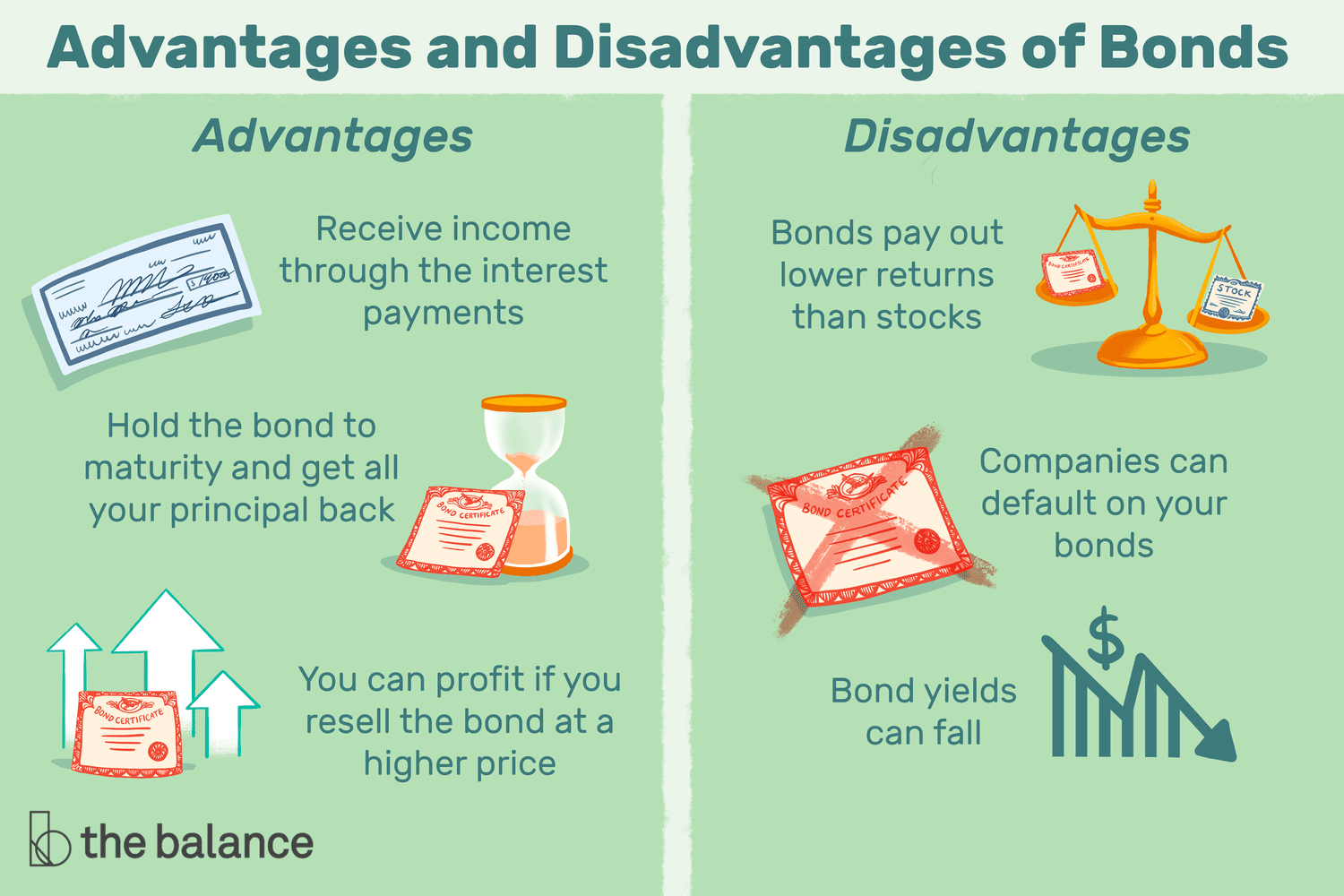Some people have referred to corporate bonds as the "last safe investment," therefore investors who are thinking about investing in fixed-income securities may wish to take them into consideration. Bonds issued by corporations of investment grade may provide investors a reliable source of income and enable them to avoid or at least compensate for the volatility that is associated with the stock market.
However, investors should take into consideration the fact that corporate bonds come with their own set of benefits and drawbacks.
Advantages of Corporate Bonds
Generally speaking, the returns on corporate bonds are higher than those on government bonds.
When it comes to obtaining a reliable source of income, a significant number of individual investors, particularly retirees, purchase and retain bonds. When they do sell the bonds, it is very seldom or never at all. Instead, they keep them until they reach maturity and then roll over the proceeds into freshly issued bonds.
Others participate in the secondary bond market by trading bonds. current bond issues are purchased and sold at a discount or a premium of their face value in this market. This occurs because the direction of new bond issues may either make current bond issues less attractive to investors or make them more desirable to investors.
Liquidity
Their liquidity is one advantage of corporate bonds. Active bond traders can benefit from selling bonds that have risen in price or buying bonds after they decline in price.
Some corporate bonds are thinly traded. That means there is relatively little demand for them, and trading them profitably can be difficult.
Investors considering selling corporate bonds should be aware that numerous variables can affect their transactions, including current interest rates, the credit rating of their bonds, and the size of their position.
Choice
Bond investors can buy short-term bonds with maturities of five years or less, medium-term bonds that mature in five to 12 years, or long-term bonds that mature in more than 12 years.
Beyond these considerations, corporate bonds come in a variety of coupon structures:
- Bonds that have a zero coupon rate do not make interest payments. They are issued at a discount to their par value.
- Bonds with a fixed coupon rate pay the same interest rate until they reach maturity, usually on an annual or semi-annual basis.
- Bonds with floating coupon rates are based on a benchmark, such as the Consumer Price Index (CPI) or the London Interbank Offered Rate (LIBOR). The interest payments rise or fall along with the benchmark.
- Bonds with step coupon rates provide interest payments that change at predetermined times, usually increasing. Most have a call provision, meaning that the initial interest rate is paid until the call date. When the call date is reached, the issuer may either call the bond or hike the interest rate.
Disadvantages of Corporate Bonds
Credit risk is a disadvantage of corporate bonds. If the issuer goes out of business, the investor may never get the promised interest payments or even get their principal back.
Corporate bonds are generally considered riskier than government bonds because governments have the option of raising taxes to meet their obligations.
Rating Risk
However, investment-grade bonds, whether corporate or government, are generally considered safe investments. Bond ratings are assigned by three rival agencies: Standard & Poor's Global Ratings, Moody's, and Fitch Ratings. There are numerous rating organizations, some of which specialize in certain sectors.
Their rating systems differ somewhat in the specifics, but any bond rated below B+ is not investment grade.
According to the Securities and Exchange Commission (SEC), all bond ratings may have a conflict of interest: The rating agencies are paid by either the bond issuer or subscribers to a bond investor website.1
A corporate bond's credit rating is an assessment of the company's creditworthiness. Some dangers cannot be predicted.
Event Risk
Another notable disadvantage of corporate bonds is event risk. Companies can face unforeseen circumstances that undermine their ability to generate cash flow. Interest payments and repayment of principal depend on an issuer's ability to generate cash flow.
Where Can I Look Up a Bond's Rating?
The rating agencies provide access to their ratings on websites, for free or with a subscription fee.
Media websites including Bloomberg maintain databases of bond ratings.
Online brokers offer their customers access to bond ratings, as do investment advisors.
What Is a Junk Bond?
Investment-grade bonds are relatively safe investments. Junk bonds are not.
A junk bond has a rating of BB or lower from S&P Global, or Ba or lower from Moody's. The rating indicates that the entity issuing the bond is more likely to default than an entity that gets a higher rating.
Junk bonds promise a higher return for investors willing to take the risk.
Many exchange-traded funds (ETFs) and mutual funds focus on junk bond investing. These may be described as "aggressive" or "high-yield" bond funds.
Why Are Bonds Traded?
Bonds are issued with an established face value and a set interest rate. That makes it tough to explain why there's a highly active secondary market where bonds are traded.
The reason is that new bonds are issued every day, and the companies and governments that issue them offer better or worse returns to investors depending on current fluctuations in interest rates.
That makes existing issues more or less valuable to bond investors than new issues.
This generally has no impact on the investor who buys a bond and holds it until it matures.
